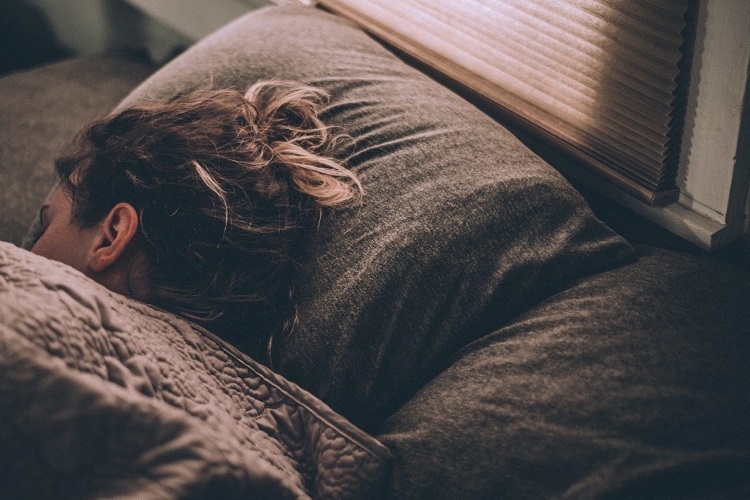Are you looking for more ways to get better sleep? Millions of Americans struggle with sleep. Either they’re not getting enough, or their quality of sleep is lacking.
While getting little sleep meant you were a hustler in years past, going without sleep is widely recognized as a physical and mental health hazard. People who lack sleep have poorer diets, experience energy dips, and encounter cognitive roadblocks.
Now, we know how essential sleep is to healthy living, and sleep is getting the attention it deserves. However, in our fast-paced world full of distractions, getting to sleep and staying asleep isn’t as easy as it sounds.
It takes work to get the sleep you need and notice a difference in your life. So here are eight tips to help you get more sleep, starting today.
Relax Before Bed
One of the main challenges to sleep is that people hit the bed stressed from work, have a stomach full of food, or are hyped up from the action movie they just watched.
Instead, people should be priming their bodies to sleep well before they go to their rooms. Your body needs signals that it’s time to wind down for the evening so that you fall asleep within minutes of your head hitting the pillow.
The biggest thing you can do for bedtime is to establish a routine that lets your body know it’s time for bed. Of course, it will take time for your body to take the hint, but eventually, you’ll feel tired within minutes of starting your routine.
Try things like:
Turning down the lights
Playing relaxing music
Reading in bed
These are just a few strategies to prime your body for bed.
Don’t Eat Before Bed
Avoid eating too much after dinner and before bed. Of course, you don’t want to go to bed hungry, but you also don’t want to try to fall asleep with a full stomach because your body will still be processing the food you just ate.
Cut off eating at least an hour before your bedtime.
Drink a Warm Drink
Try having some warm, caffeine-free tea before bed to relax your body. Something like chamomile tea does the trick, and it will relax you before you get under the covers.
Drinking tea can also be part of your pre-bedtime routine, so boiling the water and mixing the tea will become triggers that it’s time for sleep.
Go to Bed Tired
This seems obvious, but too many people don’t go to sleep until they feel tired. On the other hand, you can work to make your body more tired so that you’ll feel like sleeping earlier and faster.
You can do a million things to wear your body out, including walking or going for a run. Exercise is a fantastic way to deplete your body’s energy and fall asleep faster.
Buy Nice Bedding
Invest in some nice bedding that makes going to sleep comfortable and fun. With nice pillows and a premium mattress, you’ll almost want to go to bed at night, and your body won’t toss and turn as much trying to get comfortable. In addition, nice bedding keeps you asleep because you’re less likely to get sore or feel stiff in the middle of the night.
Sleep Colder
People who sleep in lower temperatures get into restful sleep faster and stay there longer. So turn down the temperature in the bedroom to get better sleep. During the winter, save some money by opening the windows.
If you have the budget, you can buy mattress coolers that shoot cold water through the top of your mattress to keep you nice and cool in the middle of the night. If not, wear lightweight clothing and use light bedding to avoid getting too hot.
Cut Out the Caffeine
Stop drinking caffeine after lunch to get better sleep. Too often, people drink coffee and caffeinated sodas too late in the day. As a result, they’re stimulated when they should be winding down for the day.
Cut yourself off after lunch. That way, you’ll be naturally tired when it’s time for bed.
Peptides & Sleep Quality
Peptides are short chains of amino acids that stimulate biological processes. They’re similar to proteins, but they have fewer amino acids.
Research in rats shows that the peptide Sermorelin regulates the sleep cycle by stimulating orexin release in the brain. Orexin is an important neurotransmitter that puts the body into non-REM slow-wave sleep, which is usually more restful and restorative sleep. As a result, test models saw improved immune function and happier moods.

